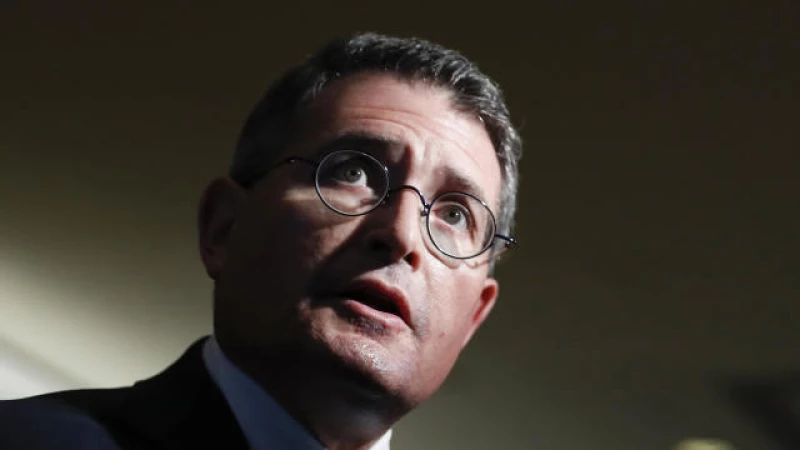Washington — Conservative judicial activist Leonard Leo said he will not comply with a subpoena issued by Democrats on the Senate Judiciary Committee as part of their ongoing investigation into ethics practices at the Supreme Court.
The subpoena was issued to Leo by Judiciary Committee Chairman Dick Durbin on Thursday, months after Democrats on the panel voted to authorize it.
"Mr. Leo has played a central role in the ethics crisis plaguing the Supreme Court and, unlike the other recipients of information requests in this matter, he has done nothing but stonewall the committee," Durbin said in a statement. "This subpoena is a direct result of Mr. Leo's own actions and choices."
Durbin, an Illinois Democrat, said that Leo's "outright defiance left the Committee with no other choice but to move forward with compulsory process."
Leo's attorney, David Rivkin, informed Durbin in a letter on Thursday that his client is refusing to comply with the "unlawful and politically motivated subpoena" he was served.
"I will not yield to his illegal support of Senator Sheldon Whitehouse and the left's covert funding campaign to stifle and eliminate political opposition," Leo, a key figure in the confirmations of several conservative Supreme Court justices, stated in a release. Leo serves as the co-chairman of the conservative Federalist Society.
An aide from the Judiciary Committee mentioned that if Leo continues to resist, the Senate has various options to enforce the subpoena.
Probe by Senate Democrats
Members of the panel voted in late November to authorize the subpoenas for Leo and Crow, whose long-standing connection with Thomas has been called into question.
The reason for the delay in issuing the subpoena to Leo, months after it was approved by all 11 Democrats on the Judiciary Committee, remains unclear.
Republican lawmakers have criticized their Democratic counterparts for pursuing these information requests, alleging that it is a tactic to weaken the Supreme Court by targeting private individuals. GOP senators have also condemned the Democrats' inquiry into ethical matters at the high court as an assault on the court's reputation following significant rulings on abortion, gun rights, and affirmative action.
Democrats are seeking documents about gifts, trips and lodging provided to any member of the high court. Leo and Crow's involvement in luxury trips provided to Thomas and Justice Samuel Alito were revealed last year.
The Judiciary Committee launched its probe in April 2023 following a report from the investigative news outlet ProPublica that revealed trips Thomas took aboard Crow's private plane and yacht, and luxury vacations the justice accepted from Crow over their 25-year friendship.
Thomas did not disclose the travel on his annual financial disclosure forms, and said in response to the revelations that he did not believe he had to do so under exemptions for personal hospitality.
Crow offered to provide the Judiciary Committee with limited information, though it did not satisfy Senate Democrats.
Democrats have come under fire for targeting Justices Thomas and Alito, with Republicans arguing that they are being unfairly singled out. Recent reports have revealed that Justice Sonia Sotomayor's court staff promoted the purchase of her books by public institutions, and that she did not recuse herself from cases involving her book publisher. Similarly, Justice Neil Gorsuch did not recuse himself in a case involving his own book publisher.
The close relationship between Justice Thomas and Crow has intensified calls for the Supreme Court to implement a binding code of ethics. Last year, the Judiciary Committee passed a bill along party lines that would require the Supreme Court to adhere to a set of enforceable ethics rules. In November, the court announced the adoption of a formal code of conduct for the first time, although it lacks an enforcement mechanism.







